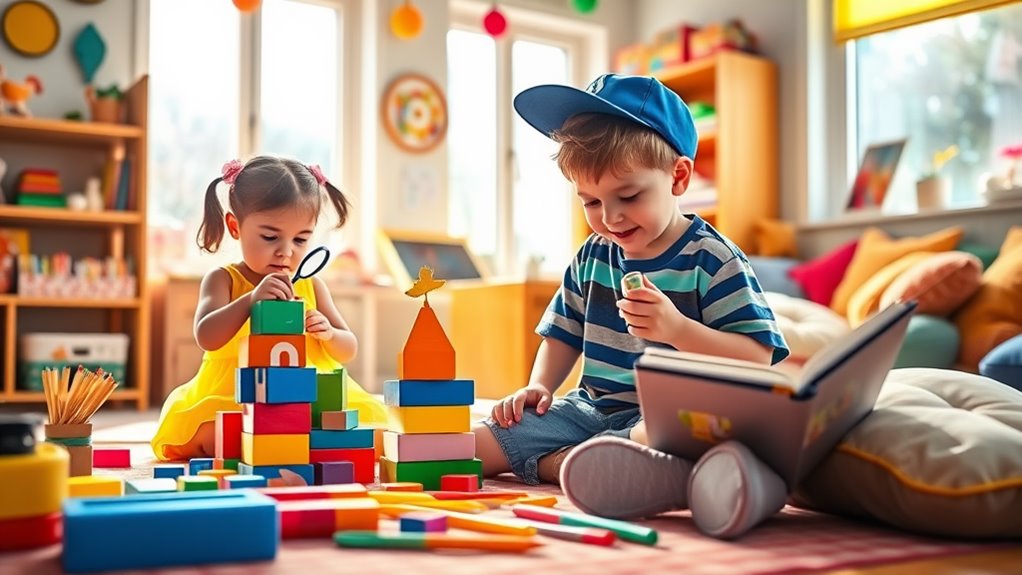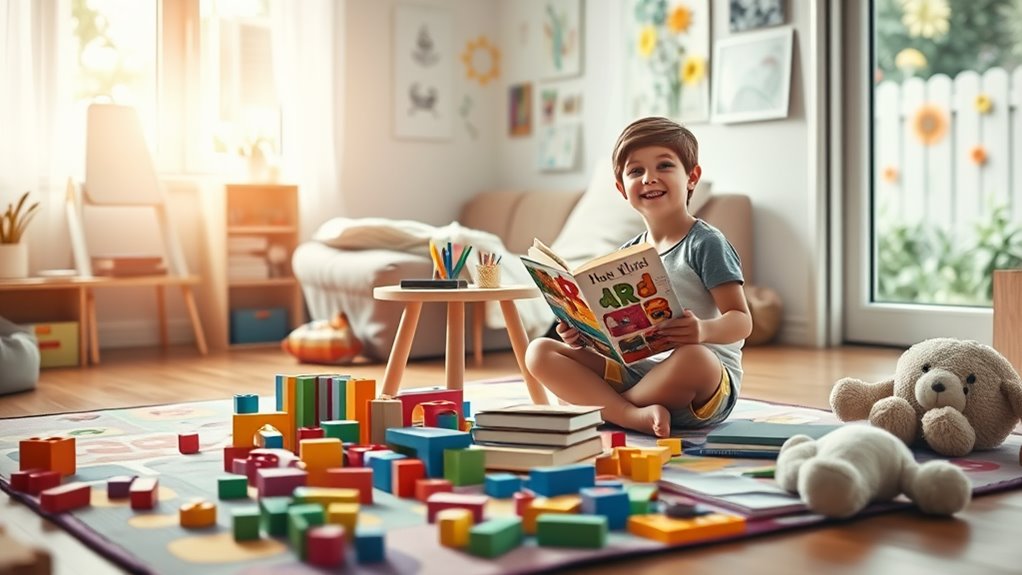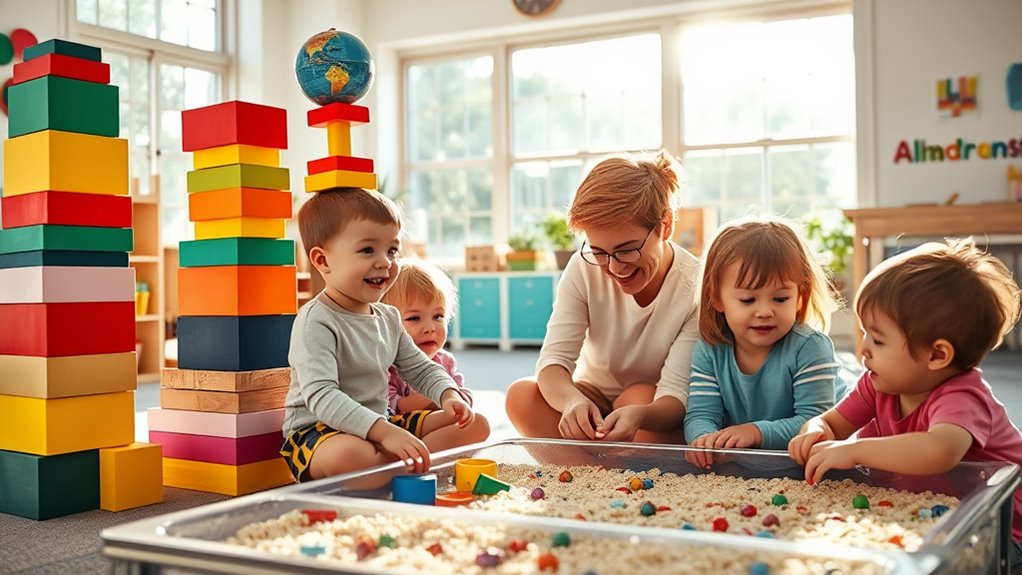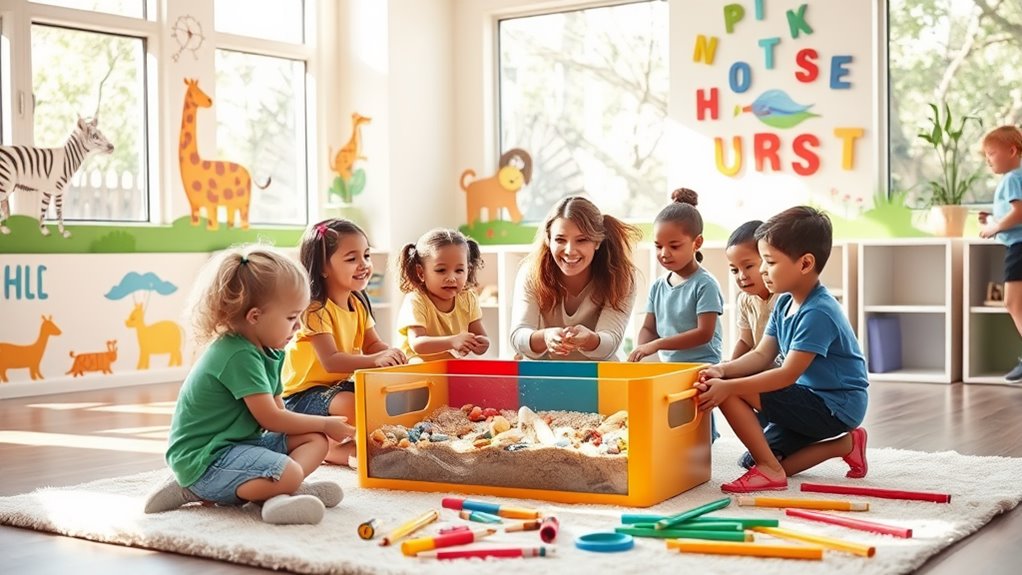Why Play-Based Learning Is Key to Early Childhood Success
You might not realize it, but play-based learning is essential for your child’s early development. It’s not just about fun; through play, children engage in activities that enhance their cognitive abilities, social skills, and emotional intelligence. As they navigate different scenarios, they learn to solve problems and interact with peers, laying a foundation for future success. This approach doesn’t just benefit them in the moment; it shapes their long-term academic journey. So, what specific aspects of play are most impactful, and how can you effectively incorporate them into your child’s routine?
Understanding Play-Based Learning
Understanding play-based learning is essential for anyone involved in early childhood education. You see, play isn’t just fun and games; it’s a powerful tool for kids to learn about the world around them. When children engage in play, they explore, experiment, and express themselves. It’s like a secret recipe for knowledge!
In a play-based learning environment, kids get to choose activities that interest them. This freedom sparks their imagination and helps them develop important skills. You might notice that while they’re building with blocks or pretending to be pirates, they’re also working on problem-solving and social skills. Who knew that a cardboard box could become a spaceship, right?
Teachers and caregivers play a crucial role in this process. By observing and guiding, you can help children dive deeper into their play experiences. It’s like being a coach on the sidelines, cheering them on and providing just the right amount of support.
Cognitive Development Through Play
Play is an essential catalyst for cognitive development in young children. When you watch kids play, you might notice how they immerse themselves in their imaginations. They build castles, pretend to be superheroes, or even cook up imaginary meals. Each of these activities is more than just fun; it’s a workout for their brains!
Through play, children explore concepts like cause and effect. When they stack blocks and watch them tumble, they learn about balance and gravity. It’s like a mini science experiment right in your living room!
Plus, play encourages problem-solving. If their tower keeps falling, they’ll figure out how to make it sturdier.
Moreover, engaging in pretend play helps kids understand the world around them. They might play doctor, which allows them to grasp roles and scenarios.
This kind of imaginative play boosts creative thinking too!
Social Skills and Interaction
Social interactions during playtime serve as a vital foundation for developing essential social skills in young children. When kids engage in play, they learn how to share, take turns, and cooperate with others.
Imagine a group of kids building a fort together. They must communicate their ideas, negotiate where to place each pillow, and decide who gets to be the fort’s guard. This playful teamwork helps them practice and refine their social skills.
Through play, children also learn to read body language and understand non-verbal cues. For instance, if one child frowns while playing a game, another might pick up on that and ask if they’re okay. These small moments build empathy and understanding, which are key components of social interaction.
Let’s not forget the fun aspect of learning social skills! Who doesn’t love a good game of tag or hide-and-seek? These activities not only keep kids active but also encourage them to build friendships and resolve conflicts.
Emotional Growth and Resilience
Children navigate a whirlwind of emotions during play, which lays the groundwork for their emotional growth and resilience. When kids engage in play, they experience joy, frustration, excitement, and sometimes even sadness. These feelings aren’t just random; they’re essential for learning how to handle life’s ups and downs.
Imagine your child building a tower with blocks. When it falls, they might feel upset, but they also learn to pick up the pieces and try again. This process teaches them that it’s okay to fail and that persistence is key. They’re not just having fun; they’re building emotional strength.
Play also gives kids the chance to express themselves. Whether they’re pretending to be superheroes or hosting a tea party for teddy bears, they explore different roles and feelings. This helps them understand their own emotions and those of others, fostering empathy.
Long-Term Academic Benefits
Engaging in play during early childhood lays a solid foundation for long-term academic success. When kids immerse themselves in play, they’re not just having fun; they’re also developing critical thinking skills, creativity, and problem-solving abilities.
Imagine your child building a fort with pillows. They’re not just stacking cushions; they’re planning, experimenting, and learning to overcome challenges. That’s like a mini-engineering lesson!
Research shows that children who engage in play-based learning tend to perform better in school. They develop a love for learning that sticks with them, making them more enthusiastic to tackle new subjects.
This playful approach promotes strong language skills, too. When kids chat and negotiate during play, they expand their vocabulary and communication skills without even realizing it.
Plus, let’s not forget that play helps with social skills. Kids learn how to cooperate, share, and resolve conflicts—all essential for group projects later in life.
Implementing Play-Based Strategies
Play-based strategies can transform any classroom into a vibrant learning environment where exploration thrives. You might wonder, “How can I bring play into my lessons?” Start by incorporating games and activities that align with your curriculum. For example, if you’re teaching numbers, use counting games with colorful blocks or fun songs. Kids love to move, so mix learning with physical activity!
Next, create learning centers. Set up different areas in your classroom where children can engage in various play activities, like a reading nook or a science corner. This allows them to choose what interests them, making learning feel less like a chore and more like an adventure.
Don’t forget the power of storytelling! Encourage kids to create their own tales using puppets or drawings. This sparks creativity while developing important language skills.
Lastly, embrace the mess! Whether it’s paint, sand, or water, the process of exploration is often messy but oh-so-important. Just think of it as a mini-science experiment in your classroom!




